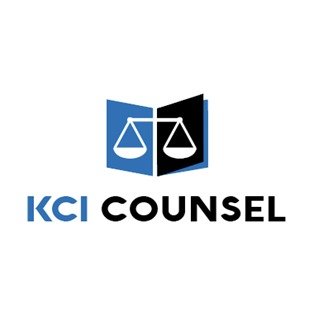Best Restructuring & Insolvency Lawyers in Vietnam
Share your needs with us, get contacted by law firms.
Free. Takes 2 min.
Or refine your search by selecting a city:
List of the best lawyers in Vietnam
About Restructuring & Insolvency Law in Vietnam
Restructuring and insolvency law in Vietnam covers the legal processes and frameworks that help businesses facing financial difficulties reorganize, liquidate, or ultimately wind up their affairs. These laws protect the interests of both debtors and creditors while promoting a fair and efficient resolution of financial distress. Vietnam's legal system aims to provide a structured approach for companies to seek protection from creditors, reorganize their operations, or undergo liquidation when recovery is not feasible. The overarching goal is to preserve business value where possible and ensure transparent settlement of obligations.
Why You May Need a Lawyer
You may require legal assistance for restructuring and insolvency matters in various situations. If your business is struggling to meet its financial obligations or has mounting debts with no clear way out, legal guidance is essential to help you assess options under Vietnamese law. Creditors seeking to recover unpaid debts or enforce security interests often need legal advice to protect their claims. In cases of potential fraud, mismanagement, or illegal asset transfers during financial distress, a lawyer can help navigate investigations and ensure compliance with the law. Legal representation is also critical during court proceedings, negotiations with creditors, and the preparation of restructuring plans or liquidation filings.
Local Laws Overview
Vietnam's primary legislation on restructuring and insolvency includes the 2014 Law on Bankruptcy and related regulations. The law outlines the procedures for filing bankruptcy, conditions for bankruptcy declaration, and the roles of involved parties such as debtors, creditors, and bankruptcy administrators. It establishes criteria for businesses to enter into negotiated restructuring or judicial bankruptcy processes. The law also provides frameworks for voluntary and involuntary liquidation, creditor meetings, reprioritization of debts, protection of employee rights, and sale of debtor assets. Besides the Law on Bankruptcy, regulations on secured transactions, commercial contracts, and securities may also impact restructuring and insolvency proceedings.
Frequently Asked Questions
What is the difference between restructuring and insolvency in Vietnam?
Restructuring refers to processes designed to help a financially distressed business reorganize its affairs, debts, and operations to survive and avoid liquidation. Insolvency, on the other hand, occurs when a business is unable to pay its debts as they come due, potentially leading to bankruptcy and liquidation.
When should a business consider filing for bankruptcy?
A business should consider filing for bankruptcy if it cannot pay its debts even after attempting restructuring or negotiations with creditors. Bankruptcy may also be necessary if creditors initiate proceedings because of overdue obligations.
Can creditors force a company into bankruptcy in Vietnam?
Yes, creditors can file a petition for bankruptcy against a debtor who has failed to meet its payment obligations within three months from the due date. The court will review the petition and decide whether to open bankruptcy proceedings.
What protections are available for companies during insolvency proceedings?
Once insolvency proceedings start, the law provides certain protections, such as temporary suspension of enforcement actions and asset freezes, to prevent creditors from gaining unfair advantage and to allow for an organized settlement process.
How are assets distributed in a Vietnamese bankruptcy?
Asset distribution follows a statutory order of priority. Secured creditors are paid first from the proceeds of secured assets, followed by unpaid wages, tax debts, unsecured creditors, and shareholders, if any assets remain.
Are directors or managers personally liable for company debts?
Generally, liability is limited to the company's assets. However, directors and managers may be personally liable if they are found to have acted fraudulently, mismanaged company affairs, or violated legal obligations during insolvency.
What happens to employees during bankruptcy proceedings?
Employees are entitled to receive unpaid salaries and related benefits from the company's assets, and such claims are prioritized during the liquidation process.
How long do restructuring or bankruptcy proceedings usually take?
The timeline varies depending on the case's complexity, the company's size, and court schedules. Some proceedings may conclude in several months, while others can take longer, especially if disputes arise.
Is it possible to save a business through restructuring?
Yes, if a feasible restructuring plan is approved by creditors and the court, a business can continue operations, repay debts according to the plan, and potentially avoid liquidation.
Do foreign creditors have the same rights as Vietnamese creditors?
Yes, foreign creditors have the same rights as local creditors under Vietnamese law, including the right to participate in creditor meetings and asset distributions.
Additional Resources
- The Supreme People’s Court of Vietnam provides official regulations and guidance on insolvency proceedings. - The Ministry of Justice offers information on legal rights, bankruptcy procedures, and lists of licensed bankruptcy administrators. - Local Departments of Planning and Investment can assist with business restructuring filings and dissolution procedures. - The Vietnam Bar Federation and local law firms with restructuring and insolvency practice areas can offer professional legal services and advice.
Next Steps
If you are facing financial difficulties or are a creditor seeking debt recovery, start by gathering your business’s financial documents and any communications with creditors or debtors. Consider consulting with an experienced legal practitioner specializing in restructuring and insolvency law in Vietnam. A lawyer can assess your situation, explain your options under current regulations, and represent you in negotiations or legal proceedings. Acting early increases the possibility of favorable outcomes, whether through restructuring or orderly liquidation. Contact local legal associations or the Department of Justice for a list of qualified professionals if you do not already have a lawyer.
Lawzana helps you find the best lawyers and law firms in Vietnam through a curated and pre-screened list of qualified legal professionals. Our platform offers rankings and detailed profiles of attorneys and law firms, allowing you to compare based on practice areas, including Restructuring & Insolvency, experience, and client feedback.
Each profile includes a description of the firm's areas of practice, client reviews, team members and partners, year of establishment, spoken languages, office locations, contact information, social media presence, and any published articles or resources. Most firms on our platform speak English and are experienced in both local and international legal matters.
Get a quote from top-rated law firms in Vietnam — quickly, securely, and without unnecessary hassle.
Disclaimer:
The information provided on this page is for general informational purposes only and does not constitute legal advice. While we strive to ensure the accuracy and relevance of the content, legal information may change over time, and interpretations of the law can vary. You should always consult with a qualified legal professional for advice specific to your situation.
We disclaim all liability for actions taken or not taken based on the content of this page. If you believe any information is incorrect or outdated, please contact us, and we will review and update it where appropriate.
Browse restructuring & insolvency law firms by city in Vietnam
Refine your search by selecting a city.

















